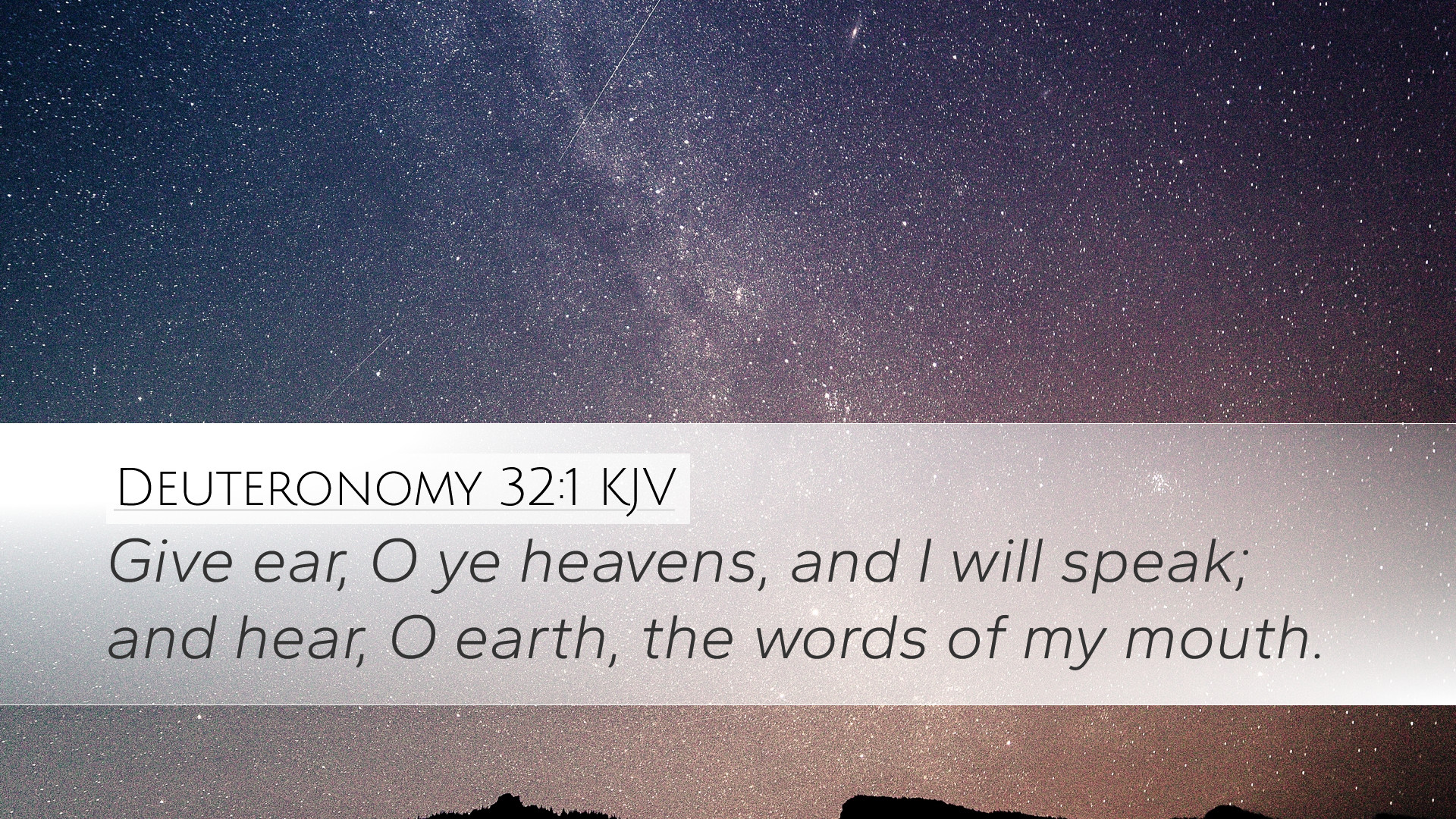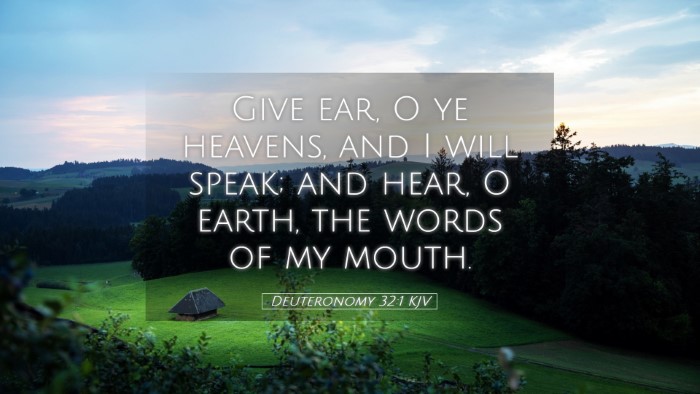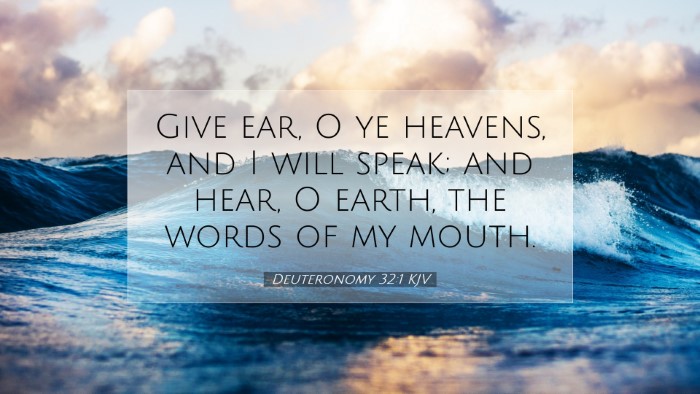Commentary on Deuteronomy 32:1
Verse Reference: Deuteronomy 32:1 - "Give ear, O heavens, and I will speak; And hear, O earth, the words of my mouth."
Introduction
Deuteronomy 32:1 serves as the introduction to the Song of Moses, a profound poetic declaration that captures the essence of God's relationship with Israel. This verse calls upon heaven and earth to witness the proclamation of God's truth, underscoring the gravity of Moses' message to the Israelites.
Contextual Analysis
The context of this verse is critical for understanding its significance. Moses, at the age of 120, is aware of his impending death and seeks to impart essential truths to the people of Israel. The Song that follows is both a warning and an encouragement, reflecting on God's faithfulness and the repercussions of disobedience.
The Call to Attention
Heavens and Earth as Witnesses: The appeal to "heavens" and "earth" signifies the universal scope of God's covenant and His sovereignty over all creation. As noted by Matthew Henry, by calling upon these elements, Moses emphasizes the importance of his message, which transcends Israel alone and calls for global recognition.
Moses' desire for heaven and earth to hear highlights the seriousness of the covenant—it's not merely a local affair but cosmic in importance. As Albert Barnes points out, this reflects an invocation of divine judgment; all creation is called to witness the unfolding of God's plan.
The Speaker and the Message
Moses as God’s Mouthpiece: Moses asserts his role as a mediator between God and His people. His use of "I will speak" signifies his authority and the weight of the words he is about to deliver. According to Adam Clarke, this emphasizes that Moses speaks not from his own authority, but as one chosen by God to declare His truth.
The Implications of Listening
The directive to "hear" indicates an active engagement with the forthcoming message. As spiritual leaders, pastors and theologians can draw from this the importance of attentiveness to God’s Word. Matthew Henry elaborates that listening involves more than mere auditory reception; it requires reflection, understanding, and an intention to act upon what is heard.
A failure to listen carries grave consequences, as evidenced throughout Israel's history. The call to obey and respond to God's Word remains pertinent today, with implications for both individuals and congregations.
Literary and Theological Themes
This verse introduces significant themes prevalent in the Song of Moses, including:
- Divine Sovereignty: The recognition of God's supremacy as creator and sustainer.
- Covenant Responsibility: The obligations placed upon Israel and the serious consequences of their disobedience.
- Creation's Response: The idea that all creation bears witness to God's dealings with humanity.
These themes offer rich material for theological reflection and sermon preparation, providing a foundation for exploring God's nature and His expectations from us.
Conclusion
Deuteronomy 32:1 serves as a vital opening to a rich theological anthem that encapsulates the essence of God’s covenant relationship with Israel. The emphatic call for the heavens and the earth to bear witness carries with it profound implications for understanding the nature of God's justice and mercy.
For pastors, theologians, and students, this verse invites us to reflect on our own roles as communicators of God's truth and our responsibility to respond to His call. It is a reminder that we, too, are part of the broader narrative of creation, called to listen and respond to the words of our Creator.


